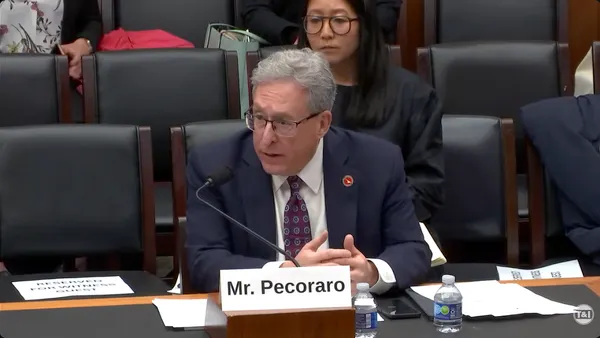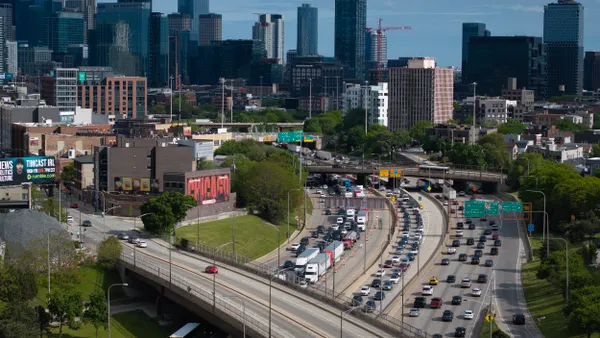Dive Brief:
- The San Francisco Municipal Transit Authority passed a resolution this week to convert its bus fleet to 100% electric by 2035.
- Tests will begin within 30 days to potentially replace hybrid buses on certain routes this year. If the tests are successful, the city says it can replace the batteries on 256 hybrids to transition them to full electric. After 2025, the authority will only purchase electric buses.
- While some environmental advocates complained that 2035 was too slow of a time frame, the city says it wants to make sure the technology works and that charging infrastructure was in place. "We would rather underpromise than underdeliver," Ed Reiskin, the SFMTA’s director of transportation, said to the San Francisco Examiner.
Dive Insight:
San Francisco Mayor Mark Farrell announced last month a goal to zero out the city’s net emissions by 2050, both by cutting sources of emissions and planting trees that can absorb carbon dioxide. According to the city, transportation makes up 46% of those emissions and is a prime target for the initiative, although public transit on the MUNI system is a tiny fraction of the transportation footprint.
Cities across the country are working to turn their bus fleets over to electric power rather than diesel hybrids; Washington, DC, St. Louis and Chicago have all purchased electric buses. Out of $264 million in grants given out last month by the Federal Transit Administration, nearly a dozen cities were awarded money to transition to electric systems. But the technology is still short of full implementation: cities have to build charging infrastructure, figure out how to keep vehicles charged on the road and ensure the buses can handle the long lifetimes needed for public vehicles.
That’s in part why San Francisco’s goal goes out 17 years — Reiskin said the transit authority has to make sure the buses can accommodate a full passenger load over more than a decade of use while dealing with San Francisco’s hilly topography. SFMTA’s trial runs will use new electric hybrid buses that will run on electric power only through designated parts of the city, with the potential to transition to battery technology earlier than planned. Converting existing facilities to charge a fleet of hundreds of buses could take even longer.











